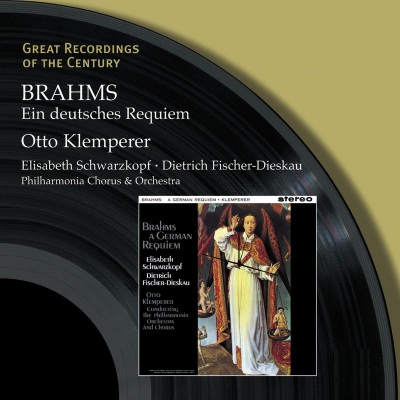
Brahms: Ein Deutsches Requiem
By 1952 the Philharmonia Orchestra, in its seven years of existence, had evolved into one of Europe's finest ensembles. Its reputation was in many respects consolidated by Herbert von Karajan's role as music director and orchestra builder, and was further shaped by legendary guest conductors Richard Strauss, Wilhelm Furtw?ngler, Victor de Sabata, and Sir Thomas Beecham, and emerging podium figures such as Guido Cantelli, Issay Dobrowen, Igor Markevitch, Wolfgang Sawallisch, and Carlo Maria Giulini. Otto Klemperer's long, productive Indian Summer at the helm of the Philharmonia lay just ahead. Orchestra founder Walter Legge's dream of dreams, however, was to have Arturo Toscanini guest conduct the Philharmonia. They met in Milan, during the orchestra's spring tour in 1952. At first, the 85-year-old Maestro expressed reluctance to take on a new orchestra, but he quickly relented. He and Legge devised six programs of diverse repertoire that would take place at London's Royal Festival Hall that summer. For various political and logistical reasons, the concerts were not possible to schedule as planned. Toscanini had to return to New York in the fall for his NBC season. It was finally agreed that the Maestro would stop over in London en route to America and conduct two all-Brahms concerts, September 29th and October

